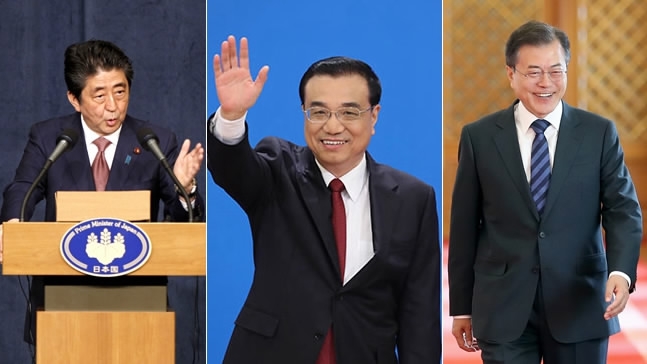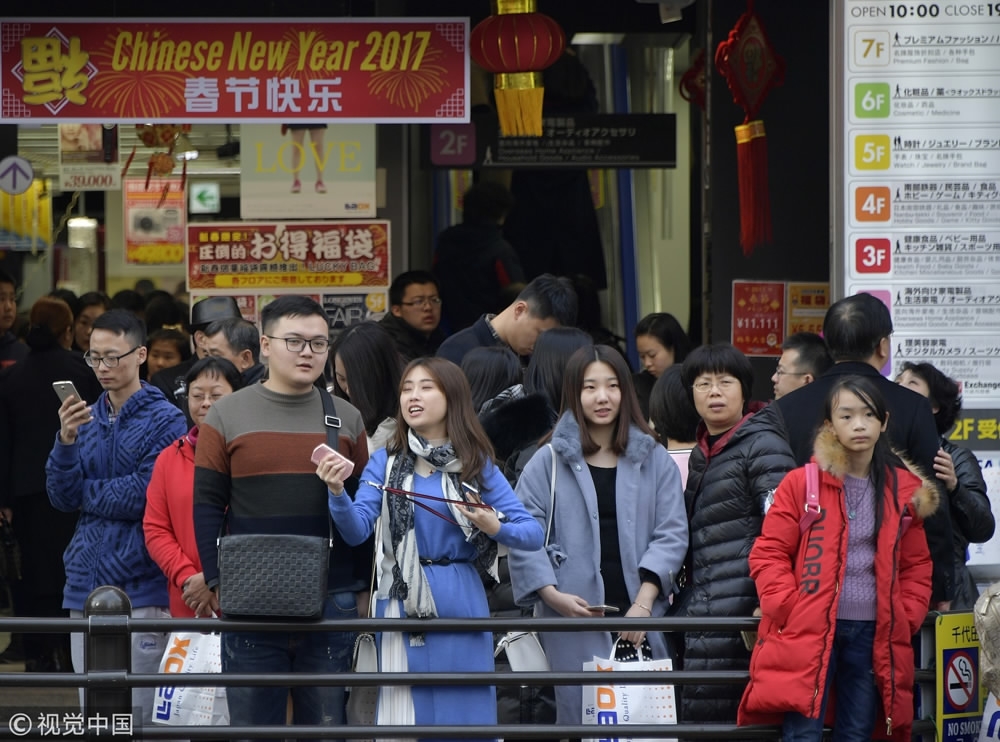
Politics
15:37, 08-May-2018
China, Japan, S. Korea seek to deepen integration as summit resumes
By Zheng Yibing
01:56

Leaders of China, Japan and South Korea will have their first meeting since 2015 in Tokyo on Wednesday. The meeting – the seventh of its kind – is expected to open up new prospects for cooperation, and contribute to regional peace, stability and prosperity.
The Chinese Ministry of Foreign Affairs said on Friday Chinese Premier Li Keqiang will attend the trilateral leaders' meeting during his visit to Japan from Tuesday to Friday, noting that the meeting will deepen cooperation among China, Japan and South Korea.
Topping the leaders' agenda are their common concerns.

January 29, 2017: Chinese tourists visit Akihabara electric district of Tokyo, Japan. /VCG Photo
January 29, 2017: Chinese tourists visit Akihabara electric district of Tokyo, Japan. /VCG Photo
Professor Gao Hong from the Chinese Academy of Social Sciences thinks that the three nations are facing a changing global pattern, and their economic integration in the region should be pushed forward timely.
He said that what's more important is that the three need to have mutual political trust.
Free Trade Agreement negotiations among them lacked substantive progress following a trilateral Investment Agreement signed in 2012.
And what remains as a concern for China and South Korea is Japan's stance on historical and territorial issues.
But coming together again is a good start.
Rong Ying, vice president of the China Institute of International Studies (CIIS), said the resumption of the stalled China-Japan-South Korea high-level talks would be very important for their ties, for regional peace and development, and for a more open world economy, and people have high expectations.

The trilateral mechanism was initiated in 1999, with annual leaders' meeting launched in 2008. Despite suspensions in 2012 and 2015 due to policy disagreements, the countries are intertwined with each other.
According to Chinese official data, the total trade among the three countries registered around 670 billion US dollars in 2017, and over 28 million people traveled in between the three countries.
Read more:
The main task for their leaders now is to seek more common ground during this meeting. That also includes seeking peace and stability in the region, like the recent encouraging signs of cooperation and denuclearization on the Korean Peninsula.
Many hope the long-expected meeting focusing on the direction of future cooperation can push forward the negotiations on the trilateral Free Trade Agreement, oppose trade protectionism and promote regional economic integration.
2104km

SITEMAP
Copyright © 2018 CGTN. Beijing ICP prepared NO.16065310-3
Copyright © 2018 CGTN. Beijing ICP prepared NO.16065310-3